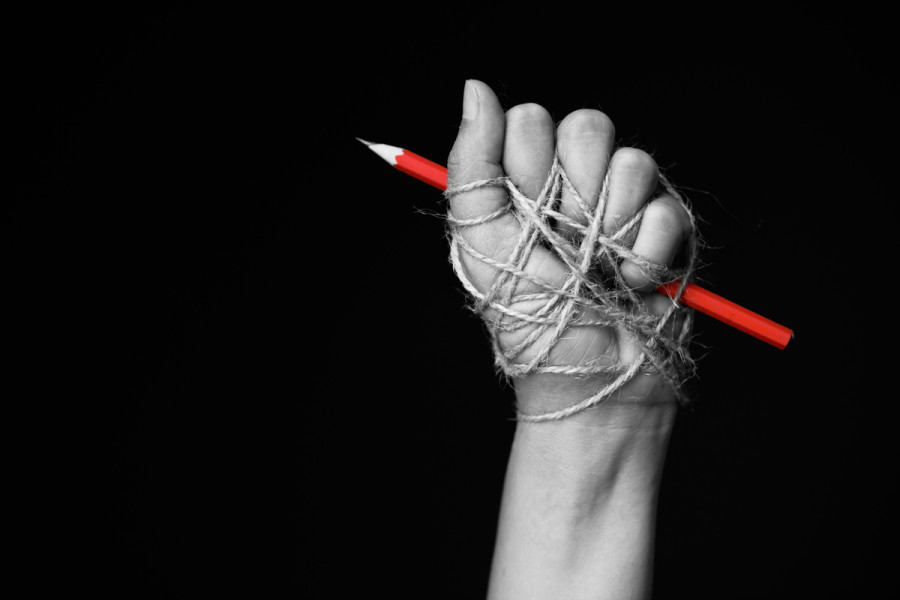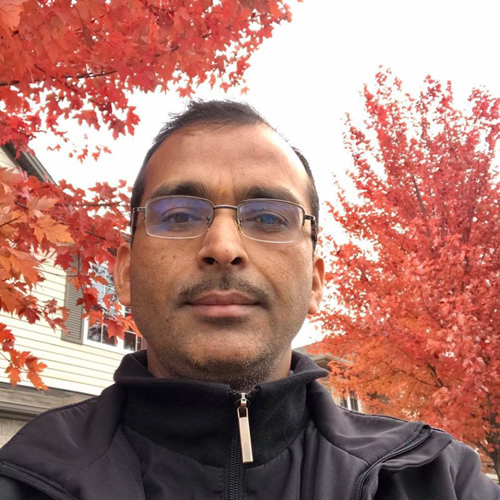Columns
Nepal can do much better
Journalists and state agencies are both to blame for the low ranking in the press freedom index.
Bhanu Bhakta Acharya
Nepal's press freedom situation in the year 2021 is a mixed feeling. On the one hand, there were no major incidents of press freedom violations (such as deaths, tortures or disappearances) reported in the year. On the other hand, there were no significant improvements in the press freedom situation either. The year began with political protests and demonstrations across the country after then prime minister KP Sharma Oli dissolved Parliament twice, causing adverse activities that obstructed access to information for journalists; increased threats, abuses and attacks against journalists by different actors; and raised concerns regarding the professional safety of journalists, their information and equipment. The Federation of Nepali Journalists (FNJ), the umbrella organisation of all journalists across the country, recorded 61 incidents of press freedom violations in 2021 that included four arrests, 10 obstructions to information collection, 32 threats and misbehaviours, five attacks, nine journalists' professional safety issues, and one policy restriction.
It is an open secret that an overwhelming majority of Nepali journalists are actively involved in different political parties, raising issues of conflict of interest in their professional conduct. Dozens of journalists, including elected FNJ officials, took part in the elections of political parties without resigning from their journalistic roles even though such political participation was a clear violation of the journalists' code of conduct and the FNJ constitution. Bala Adhikari and Sarita Timsina Pageni, FNJ vice-president and central committee member respectively, participated in a political election and publicly declared their departure from the journalistic profession. As soon as they did not get expected political positions, they deleted their public posts on social media and attempted to keep their FNJ positions.
Journalists and cadres
According to an FNJ source, at least 27 FNJ chapter presidents filed candidacies for political positions of different political parties without formally terminating their role as FNJ officials. Since direct involvement of journalists as cadres of different political parties is a serious matter of conflict of interest in professional journalism, the FNJ warned their officials and member journalists to avoid dual roles as journalists and political cadres or they would be ousted from the organisation. However, the warning was not considered seriously by journalists because the FNJ itself has been deeply involved in politics. FNJ frequently issues press releases expressing its concern over various political developments in the country, whether or not these activities are directly related to press freedom or freedom of expression.
There were several incidents in which different state agencies were involved in silencing critical voices using various tactics, including charges of "fake news". For example, security persons raided the residence of journalist Babin Sharma for publishing a critical news story on www.ujyaalonetwork.com on April 16 about a secret agreement between an Indian diplomat and the then prime minister. Government officials argued that the news story was fake, but they did not involve professional fact-checking organisations to justify their claim.
The Supreme Court also summoned journalists Rajan Kuikel (editor of imagekhabar.com) and Narayan Amrit (editor of nepalsamaya.com) on May 25 for publishing "baseless news" about the chief justice's meeting with the prime minister. The Supreme Court argued that the news was fake and misleading and asked the two journalists to reveal their sources. On the same day, Press Council Nepal too issued a clarification letter to these journalists over the news. Thus, we see the court and press council intimidating the news media for their critical reporting. Harassing journalists for their critical reporting and asking them to reveal their sources go against a free press, editorial independence and the safety of journalists. Journalist Mohammad Mojibullah was "falsely implicated" by police personnel in a case related to the possession of illegal drugs and arrested on August 16. After nine days in custody, the journalist was released after CCTV footage revealed two police personnel planting drugs in his motorbike. This incident justifies a lengthy complaint from the journalism fraternity that some security persons were deliberately engaged in defaming journalists and silencing criticism through conspiracy tactics.
As in previous years, government agencies increased control over state-owned media outlets such as Gorkhapatra, Radio Nepal, Nepal Television and the National News Agency (RSS) to ensure favourable coverage and propaganda. Political appointments in decision-making positions of these media have become a customary practice. Gorkhapatra deleted an article critical of the government from www.gorkhapatraonline.com on December 7 due to political pressure from the Prime Minister's Office. The article, authored by Ghanashyam Bhatta and published in the print and online versions of the newspaper, was about the Nepali Congress's general convention expectations. The author was critical of the current leadership. These incidents illustrate an authoritarian press system where governments exploit the news media and journalists as its propaganda tools. Baluwatar, the prime minister's official residence, is the primary gatekeeper for state-owned media content.
Way forward
Nepal's press freedom situation is far better than in other South Asian countries. But the press freedom index of Reporters Sans Frontieres shows Nepal to be far behind Maldives and Bhutan. Two potential reasons appear to justify why Nepal is hardly within the top 100 countries: One, journalists' inadequate adherence to the code of conduct; and two, state agencies not following due process of law when dealing with media and journalists. Of the 61 press freedom violations recorded by the FNJ, more than half appeared to have been caused by journalists disregarding their professional code of conduct.
In this context, Nepali journalists should strive for more professional conduct, such as maintaining an independent relationship with news subjects, verifying information carefully, avoiding conflict of interest, and being accountable and transparent to their news reports. Government bodies too are to blame for the failure of Nepal to be in the top 100 countries in the press freedom index because they often do not follow the due process of investigating the authenticity of media content. Nepal can substantially improve its position in the press freedom index than the current ranking.




 11.12°C Kathmandu
11.12°C Kathmandu















